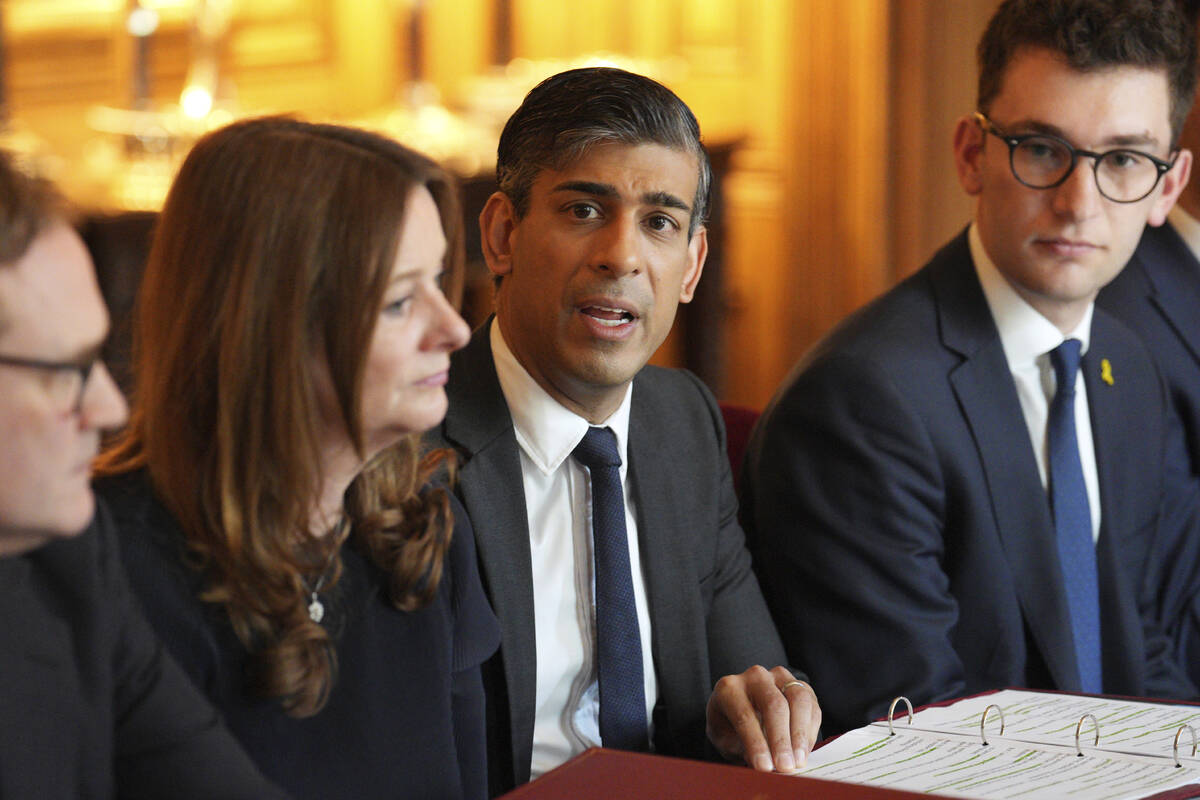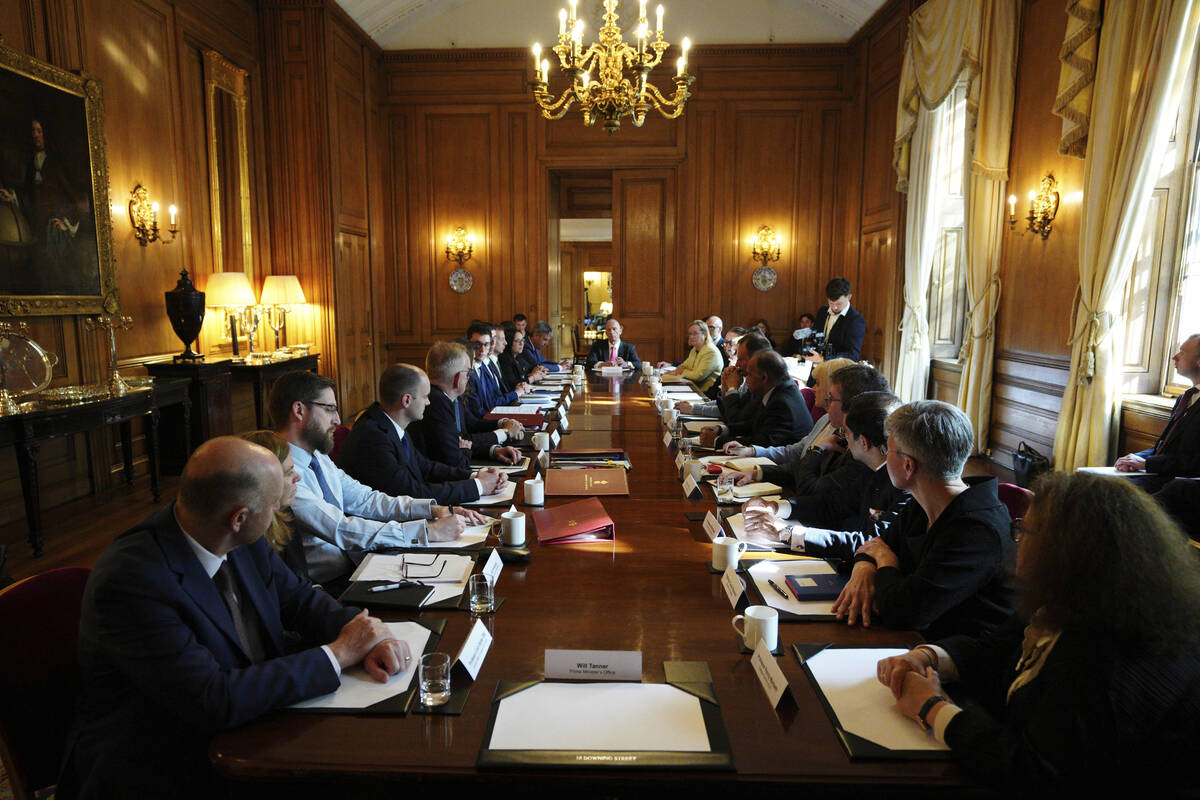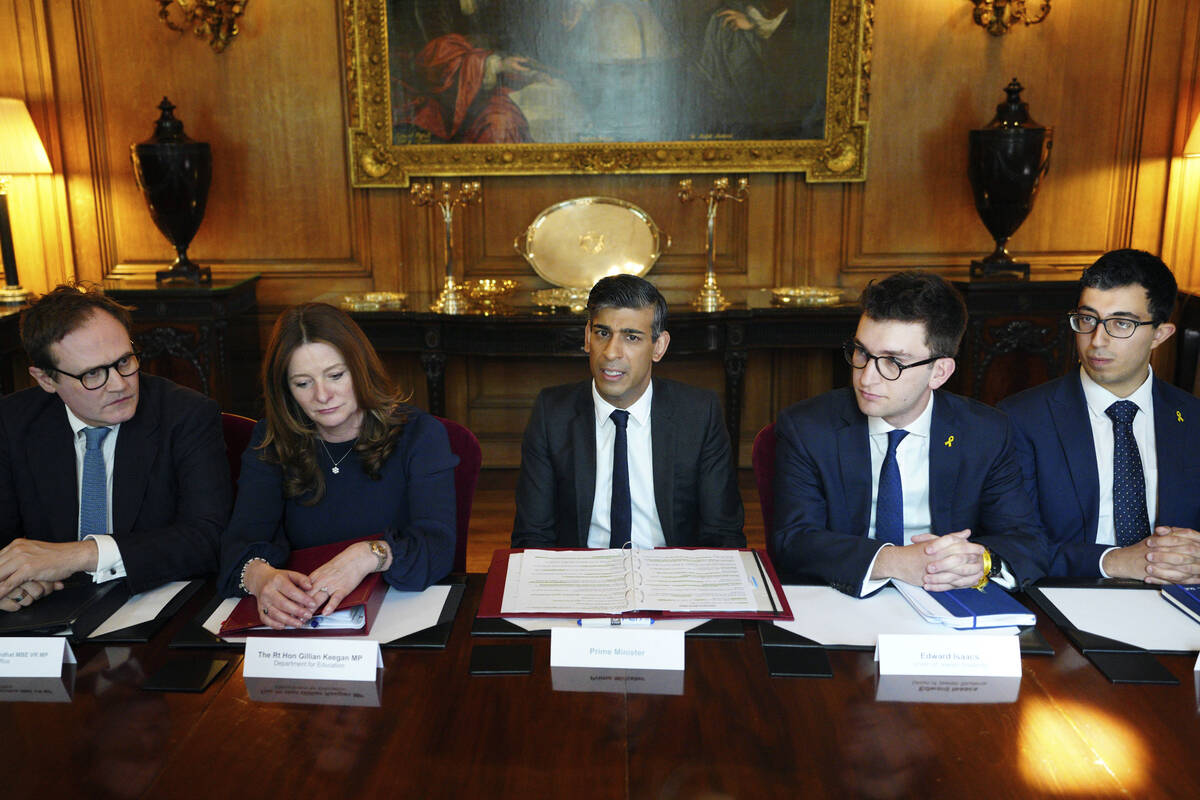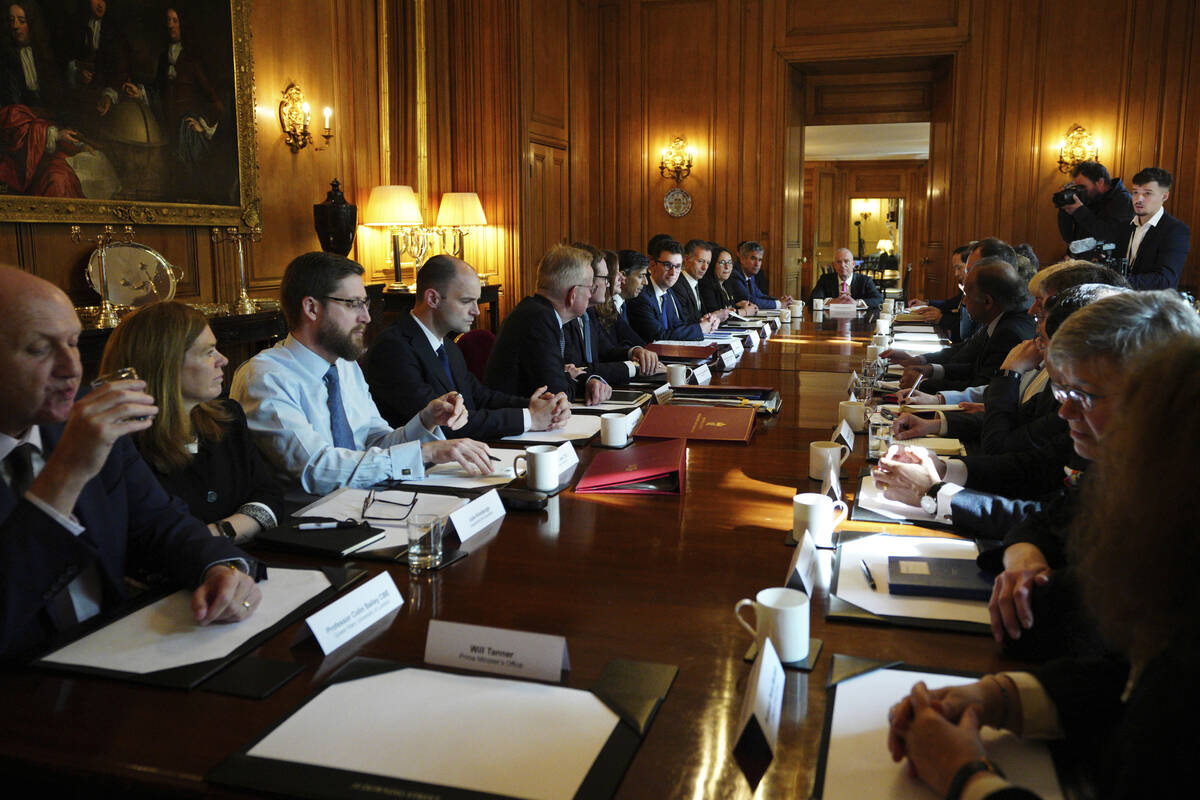British government tries to avert the type of unrest seen on American campuses
LONDON — British Prime Minister Rishi Sunak on Thursday called for an end to antisemitism on campus as he met with university leaders in an effort to prevent the type of unrest seen on American campuses in recent weeks.
Sunak summoned the vice chancellors of Britain’s top universities to his Downing Street offices after the government said “antisemitic abuse” was disrupting learning amid a growing number of pro-Palestinian protests.
Ahead of the meeting, Sunak warned of “students and academic staff being targeted, threatened, and assaulted simply for being Jewish.”
“We will always protect freedom of speech and the right to protest,” Sunak wrote in the Times of London. “But just as importantly, universities have a profound duty to remain bastions of tolerance, where such debate takes place with respect for others — and where every student feels safe and at home, whatever their faith or background.”
Pro-Palestinian protesters have built encampments at about a dozen U.K. universities, including Oxford and Cambridge, over the past two weeks as some students and academics call on the institutions to cut ties with Israel over the conflict in Gaza.
While the protests have so far remained relatively small and peaceful, some Jewish students are expressing concerns about antisemitism.
Sunak’s office said he had invited vice chancellors from some of the U.K.’s top universities to discuss efforts to tackle antisemitism on campus. Vice chancellors are the top academic and administrative officials at British universities.
As part of the effort, Sunak announced that the government would provide an additional 500,000 pounds ($623,000) to the University Jewish Chaplaincy Service to support Jewish students.
The number of antisemitic incidents at the U.K.’s 142 universities tripled last year as tensions rose over the war in the Middle East, according to the Communities Security Trust, which works to combat antisemitism in Britain.
That mirrors the trend seen across Europe and the U.S. following the Oct. 7 Hamas terrorist attack on southern Israel and Israel’s ensuing military campaign in Gaza, according to major Jewish organizations.
Hamas and other terrorists abducted around 250 people in the attack and killed around 1,200, mostly civilians. They are still believed to be holding around 100 hostages and the remains of some 30 others.
Israel’s offensive in Gaza has killed over 34,000 Palestinians, the Hamas-run Health Ministry in Gaza says.
The war has inflamed tensions around the world, triggering pro-Palestinian protests including encampments on U.S. college campuses where disruption and confrontations with counter-protesters have attracted police intervention. Israel and its supporters have branded the protests as antisemitic.
By calling in the vice chancellors, Sunak has inserted himself into the debate about balancing the right of free speech against the right of all students to pursue their education without fear of intimidation.
Sally Mapstone, president of the higher education trade body Universities U.K., said universities have a duty to provide a safe environment for everyone on campus and they are taking that responsibility very seriously amid recent tensions.
“We want to work with government (and with the Department for Education) to do everything we can to generate a culture which de-escalates the tensions that we are seeing at the moment and allows reasoned debate without the opportunities for harassment, which are concerning,” Mapstone, who is also vice chancellor at the University of St. Andrews, said in an interview with the BBC.
Mapstone added that she did not think antisemitism was an intrinsic problem at British universities.
“But I do think the universities are crucibles of ideas and debate,” she said. “And when tensions are running high across the country, as they demonstrably are, then universities, because they’re full of young people with very strong and impassioned views, become a focus for those sorts of debates.”




















